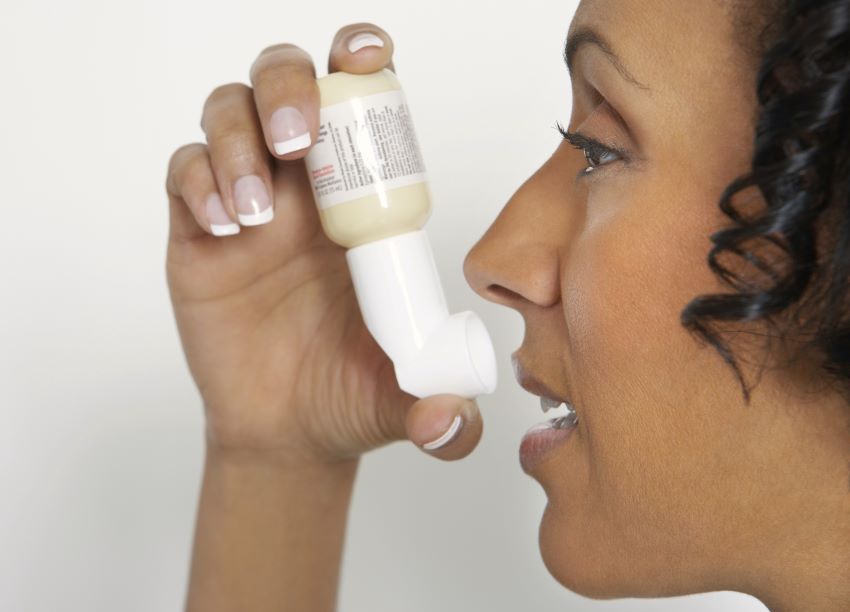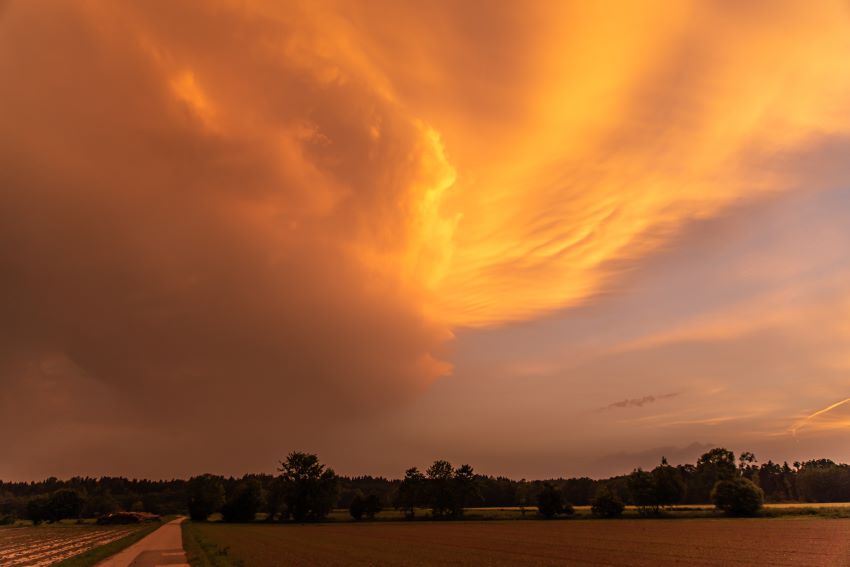
Head of the Queen Elizabeth Hospital’s Respiratory Unit, Dr. Dawn Alleyne, says more Barbadians are being diagnosed with asthma later in life, in their 40s and 50s.
Dr. Alleyne, who is a Pulmonologist/Intensivist and also Head of the Department of Medicine at the hospital, said the incidence of asthma in the Caribbean, including Barbados, had increased 17-fold since the 1970s. She added these trends are correlated with the increase in Sahara dust plumes and the frequency of the dust in the atmosphere.
She further noted that about 20 per cent of the local population had asthma. This meant the condition was quite common.
Due to climate change, dust events have been increasing. The dust, which traditionally visits from June to August, is now being seen in March or April.
The Pulmonologist/Intensivist said traditionally in Barbados, persons presented with asthma in childhood and either grew out of it as they got older, or lived with it as adults. However, this has changed.
“On a day-to-day basis when we conduct clinics, either [in my private practice] or at the hospital, I meet lots of people with severe lung diseases of all types, especially people with asthma. And several of my asthmatic patients have recorded quite clearly in their diaries that they’ve had challenges when we get the situations where we have cars covered in grey dust. Generally, those are the heavy Sahara dust days.
“A lot of the patients are now having to reach for their rescue inhalers, the Ventolin and Berotec inhalers because the asthma condition which generally has been stable, seems to deteriorate during the periods of times when we have lots of dust in the atmosphere,” Dr. Alleyne stated.
The respiratory expert shared that persons usually presented with a gamut of symptoms when dust events occurred. These include itchy eyes, runny nose, soreness of the throat, coughing, especially at night, and wheezing.
Those who have chronic lung diseases, such as interstitial lung disease and chronic obstructive lung disease, also complain of increase in shortness of breath on the days in which there is a heavy dust cover, she said.

She added that people who are not asthmatics should pay close attention to symptoms, such as chest tightness, when there is exertion, allergic rhinitis, eczema, snoring at night or allergic conjunctivitis. These persons could have an increased risk of developing asthma, she stated.
Dr. Alleyne noted the situation was not unique to Barbados but could be seen across the world wherever the Sahara dust is being disseminated.
“So, you look at studies from Spain, Italy, the United States, and the French Caribbean. Throughout these areas, people are reporting an increased incidence of Sahara dust plumes, increased incidence of deterioration of asthma control, and patients are being hospitalised for not only respiratory illnesses, but also cardiovascular illnesses. So, the Sahara dust situation really is one that we really need to look at, not just as a hazy day and a sunset that’s not quite clear but really the impact that it is having on health in general, and we need to take it quite seriously.”
“So, you look at studies from Spain, Italy, the United States, and the French Caribbean. Throughout these areas, people are reporting an increased incidence of Sahara dust plumes, increased incidence of deterioration of asthma control, and patients are being hospitalised for not only respiratory illnesses, but also cardiovascular illnesses. So, the Sahara dust situation really is one that we really need to look at, not just as a hazy day and a sunset that’s not quite clear but really the impact that it is having on health in general, and we need to take it quite seriously.”
Head of the Queen Elizabeth Hospital’s Respiratory Unit, Dr. Dawn Alleyne
In the case of cardiovascular diseases, she said research show that the dust seems to affect the cardiovascular system adversely.
She explained that while larger dust particles are usually deposited pretty high in a person’s airway, causing sneezing and coughing, the smaller ones had the potential to enter the bloodstream and cause inflammation, which can be a precursor to cardiovascular events.
Dr. Alleyne suggested Barbados implements a Sahara dust warning system, much like the one that exists in Trinidad, where they give accurate accounts of the air quality index. She said it could help people with respiratory conditions prepare and protect themselves better.
“So, I’m hopeful that in the future, we’ll be able to get something that tells us these are the exact numbers and to give warnings to specific categories of people. I think that will be very helpful,” the Pulmonologist/Intensivist stated.

In the meantime, Dr. Alleyne gave some advice on how people should protect themselves when the dust is present.
- Parents should make sure their children have their rescue inhalers on them at all times. If the doctor has prescribed a controller medication, parents should ensure they use it as prescribed.
- If your child is having an adverse reaction to Sahara dust, then that might have to be the day a parent may have to make an executive decision by keeping their child at home. But, if the child must go to school because of exams or so on, they should walk with a mask – an N95 or KN95, which filters out 95 per cent of dust particles.
- If a person has an adverse reaction to the dust, remote work or learning should be considered.
- Persons working outdoors, like in construction, when the dust is present should wear masks with filters.
- Consider using HEPA filters to clean the air within homes and offices.
- Wet crevices of doors and create tight seals to capture dust to get rid of it easily when it accumulates.
Dr. Alleyne said Barbadians will have to live with the Sahara dust since it seems to be here to stay.
“So, people who have asthma and chronic lung diseases that are on inhalers, known as maintenance or preventative inhalers, I advise them to use those inhalers almost religiously because those will help to mitigate against inflammation that occurs when you have dust intruding into your airways,” she maintained.
